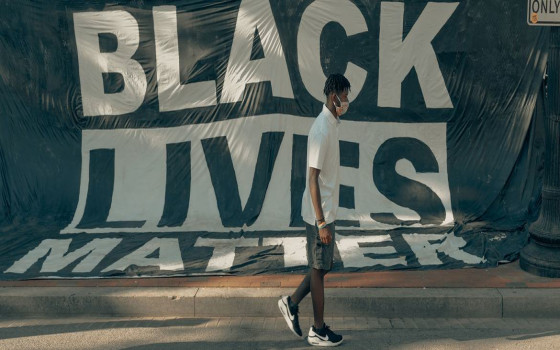
A UN expert calls on the United States of America to increase efforts to confront systemic racism and confront hatred

- Europe and Arabs
- Wednesday , 15 November 2023 14:41 PM GMT
Washington: Europe and the Arabs
A UN human rights expert urged the United States of America to increase its efforts to address “ongoing systemic racism,” adding that she felt shocked and appalled at times by the multifaceted and reinforcing manifestations of systemic racism that she witnessed in every state she visited. According to what was stated in the United Nations’ weekly news bulletin, which we received a copy of. One of them on Wednesday morning
Ashwini Kay said. B., Special Rapporteur on contemporary forms of racism, racial discrimination, xenophobia and related intolerance, said: “The United States stands at a critical crossroads in the fight against racism and racial discrimination.”
The independent UN expert's statements came in a press conference held yesterday, Tuesday, at the United Nations headquarters in New York, after a 14-day visit to the United States.
Ms Ashwini said the issue of racism and racial discrimination had received increasing attention in recent years. She added: “The killings of George Floyd, Breonna Taylor and many others, the racial disparity of the impact of Covid-19, and the widespread racial justice protests of 2020 have brought some of the facts about the systemic persistence of racism into the American collective consciousness.”
"It was abundantly clear throughout my visit that many still face ongoing, systemic racism and racial discrimination," she added.
Resistance operations
The Special Rapporteur on contemporary forms of racism said that following sustained calls from civil society groups and human rights activists, and the election of the Biden-Harris administration in 2020, that accountability has translated into “remarkable efforts” for racial justice and an initiative to improve racial equality.
But she pointed out that the initiatives taken by the US government “have not yet translated into significant improvements in the life experience of most excluded individuals, and do not adequately address the issue of white supremacy, the underlying imbalance of power and historical motivations that support contemporary forms of racism and racial discrimination.”
She said she observed with deep concern coordinated resistance operations against racial justice initiatives.
Polarization and uncertainty
The human rights expert also noted with deep concern “a climate characterized by deep political polarization, economic uncertainty, extreme income and wealth inequality, and severe damage to the fabric of American society.”
She added that these trends create fertile ground for hatred, including the elimination of the other, stereotyping and blaming those belonging to several groups, including blacks, Latinos, immigrants, Asians, Jewish communities, Muslim individuals, and Arabs.
“I was saddened by the multiple testimonies from those who expressed their deep fear for their safety and the future of this community,” Ashwini said.
The UN expert observed many manifestations of systemic racism that are “deeply concerning,” including denial of the right to vote, racial discrimination in education, homelessness, environmental racism, a racially discriminatory food system, unfair health care, and racial discrimination in law enforcement and the justice system. Criminal and migration governance, and discrimination in the development and use of digital technologies.
The human rights expert said that during her visit she received information about “deeply disturbing levels of hate speech and hate crimes, including anti-Black and anti-Asian hatred, anti-Semitism, and Islamophobia.”
Tackling hate urgently
The Special Rapporteur on contemporary forms of racism stressed the need for the United States government, including federal and state authorities, to urgently address rampant hatred and move forward in eliminating systemic racism and racial discrimination.
She explained that this will require a significant increase in investment, an overall improvement in the political, public and civic participation of those who belong to racially marginalized groups, and taking further measures to further civilize the political and societal climate.
She added that anti-racism efforts must focus more effectively on addressing white supremacy, the underlying power imbalance, and the historical drivers of racism and racial discrimination.
The UN expert visited a number of American states and cities, including Washington, D.C., and the cities of Detroit, Los Angeles, New Orleans, Baton Rouge, and Atlanta. She met with representatives of federal, state and city governments, state government officials and service providers, as well as more than 80 civil society groups working to combat racism, racial discrimination, xenophobia and related intolerance.
It is noteworthy that special rapporteurs and independent experts are appointed by the Human Rights Council in Geneva, which is an intergovernmental body responsible for promoting and protecting human rights around the world. Rapporteurs and experts are tasked with studying human rights situations and submitting reports on them to the Human Rights Council. It should be noted that this position is honorary, and these experts are not considered employees of the United Nations and do not receive compensation for their work.












No Comments Found